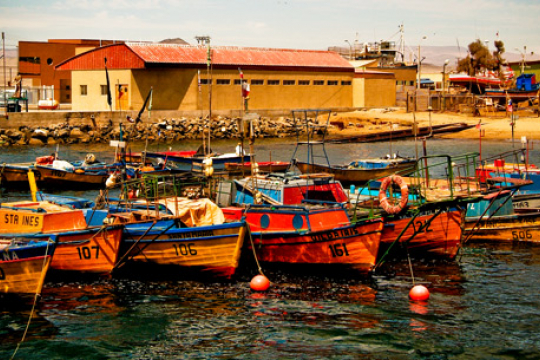Overfishing or the misuse of open marine resources can cause them to collapse. To cope with this problem, many governments restrict access to fishing grounds. However, corrupt practices hamper the benefits of that method.
Governments usually establish a quota that ensures the sustainability of marine resources to avoid over-catching. Nevertheless, empirical evidence suggests that quotas established by external consultants can be altered through collusion between fishers and consultants. And with resources becoming scarcer and access to those resources becoming more valuable, incentives for corrupt practices are bound to increase.
Researcher from EfD Chile Juan Rosas, and Co-author José Antonio Carrillo-Viramontes, analyzed the circumstances under which collusion between artisanal organizations and external agents takes place, altering the sustainable equilibrium of the system.
Who should monitor the monitors?
The aim of Territorial Use Rights for Fishing (TURF) is to grant collective rights that control fishermen and hold them accountable for their use of common resources. But even though TURFs can reduce overfishing and monitor this situation, the behavior of organizations depends partly on whether the resources are scarce or abundant.
Originally, the TURF system suggested that organizations should manage all issues related to the area, including fishing quotas. That would be an ideal scenario for regulators since enforcement is costly. But in reality, fishing organizations share the management responsibilities with regulators.
The authors exposed two types of collusion, vertical and horizontal, and how they can occur between an artisanal organization and an external agent. Vertical collusion is when external agents include inspectors who are legal authorities, whereas horizontal collusion refers to the participation of external consultants.
However, if external consultants determine the environmentally friendly quotas and inspectors regulate the enforcement of these quotas, what is the role of artisanal fishing organizations and regulators to safeguard sustainability? And, who monitors the monitors? Those are two of the questions raised by the authors of this study, inviting others to continue research on the matter to reduce the gap between theory and practice.
Collusion is more likely when stocks are high
The study suggests that collusion is more likely to occur when the initial resource stock is high. When it’s scarce, collusion with an external consultant is less likely to occur, this is mainly because external consultants have to be more careful in setting the quota than when resources are abundant. Also, results showed that the expert consultant can claim there’s a low stock if the organization proposes collusion so there can be illegal catches without exceeding the biological limits.
Even though “the probability of collusion under scarcity increases considerably this information is relevant for policymakers” who tend to consider the legal quota as the maximum sustainable limit, explained Juan Rosas. Regulators should increase penalties for agents involved in bad practices such as collusion, and policy should focus on reducing collusion when there are abundant natural resources.
If you want to get access to the article, please visit our EfD website here!
